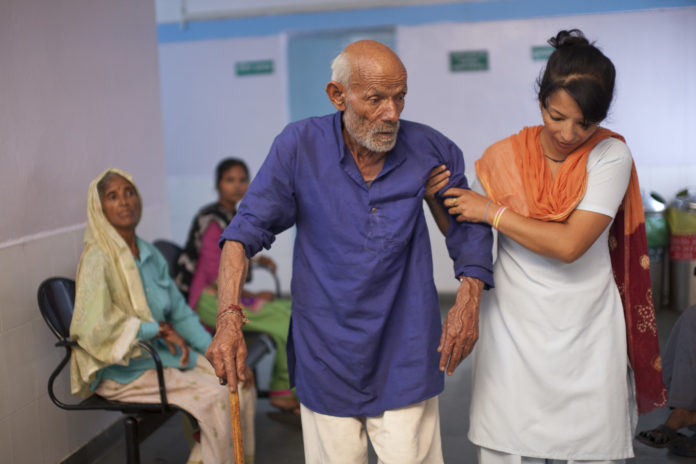Unless public financing increases to 2.5%, journey towards universal health coverage will be sluggish
Days after health minister J P Nadda reiterated India’s commitment to Universal Health Coverage (UHC) at the World Health Organization, one of the best known public health experts has cautioned that without increase in public financing, Ayushman Bharat progress may be sluggish.
“The budgetary allocations to HWCs and NHPS (since renamed National Health Protection Mission) this year are very low and need to be increased at least 5-fold next year. Unless public financing increases to 2.5% of gross domestic product well before 2025, the journey toward UHC will be sluggish, despite the uplifting promises made in the reforms initiated this year,” Dr K S Reddy, president of Public Health Foundation of India and author of a seminal report on India’s road to UHC has written in an article in the JAMA.
Dr Reddy has warned that National Health Protection Mission that will provide a Rs 5 lakh annual health cover to 10.74 crore Indians may not gain momentum without substantial fund infusion.
Dr Reddy was the chairman of the High Level Expert Group on UHC commissioned by the erstwhile Planning Commission. In the JAMA article Dr Reddy has warned that National Health Protection Mission – NDA is planning as it as its health flagship that will provide a Rs 5 lakh annual health cover to 10.74 crore Indians – may not gain momentum without substantial fund infusion.
“India has committed to UHC but it may take years to achieve. Even the NHPS covers only 40% of the population. The rest of the population is mostly uninsured because private insurance covers only a small segment. Out-of-pocket spending on outpatient care and catastrophic expenditure on hospitalized care will continue to represent major problems that will need to be addressed,” Dr Reddy wrote.
In his address on Saturday to the World Health Assembly in Geneva, health minister J P Nadda said that India is firmly committed to achieving universal health coverage for its citizens as has been articulated in the National Health Policy 2017.
Dr Reddy used the existing health scheme for BPL workers the Rashtriya Swasthya Bima Yojana (RSBY) and the ongoing health protection schemes of state governments as schemes that had failed to provide the anticipated financial protections for various reasons. “However, all of these schemes helped to develop robust information technology–enabled services and fraud detection mechanisms. They also engaged both public and private health care practitioners, for the first time, in large government-funded programs. This experience will benefit NHPS as it evolves,” he wrote.
